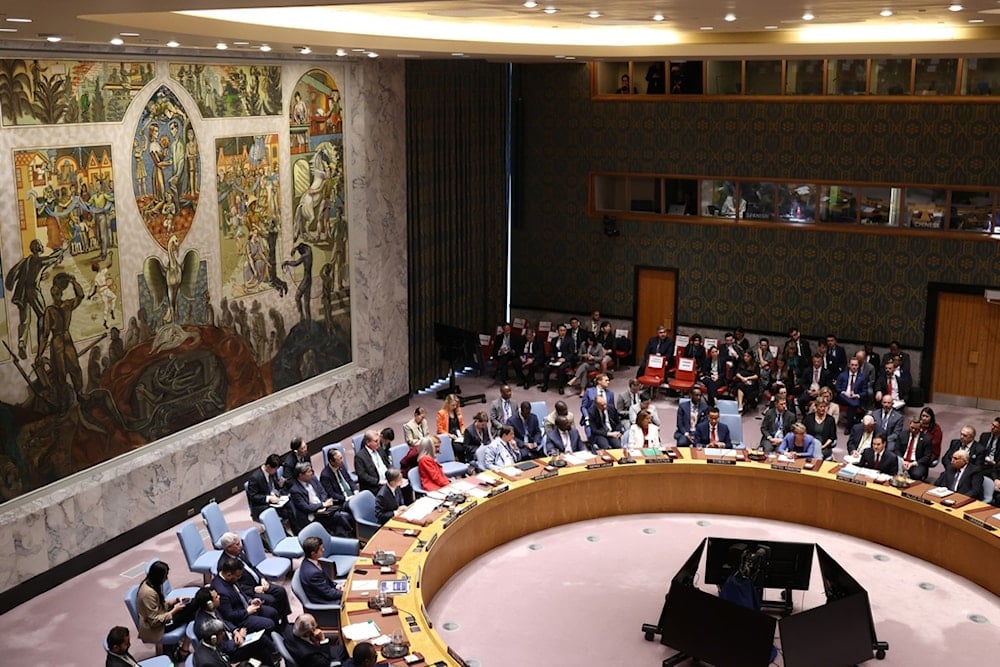Iran officially cancels Cairo agreement with IAEA over new resolution
Iran cancels its nuclear cooperation understanding with the IAEA after a new resolution pushed by European states, accusing them of undermining trust and credibility.
-

US Secretary of State Marco Rubio speaks during a United Nations Security Council ministerial meeting on Ukraine at the UN headquarters, Tuesday, September 23, 2025 (AP)
Iran has formally terminated the Cairo understanding with the International Atomic Energy Agency (IAEA), after informing Director General Rafael Grossi in an official letter that the arrangement “is no longer valid and is considered officially ended,” according to Iranian Foreign Minister Abbas Araghchi.
Araghchi stated Thursday that the understanding had already been nullified “after the illegal action of the three European countries in the Security Council to reimpose canceled UN Security Council resolutions” against Iran. The message to Grossi marks the first formal notification of the cancellation.
The foreign minister criticized the latest decision by the agency’s Board of Governors, which was introduced by the European troika and Washington against Tehran, saying these parties “ignore Iran’s goodwill, undermine the credibility and independence of the agency, and disrupt the path of cooperation between the agency and Iran.”
IAEA adopts E3 resolution
Earlier in the day, the Board of Governors adopted the European-proposed resolution on the Iranian nuclear file, securing 19 votes in favor, three against, and 12 abstentions.
The recent resolution passed by the IAEA Board of Governors demands that Iran provide immediate and comprehensive clarification regarding its enriched uranium stockpile and grant full access to nuclear sites impacted during the June attacks.
The resolution, drafted by the United States alongside the E3 countries: Germany, France, and the United Kingdom, asserts that Iran has not sufficiently addressed concerns related to undeclared nuclear activities, particularly at locations damaged by foreign strikes.
It also calls on Iran to resume full cooperation under its safeguards agreement, urging Tehran to allow inspectors broader access to facilities and documentation. However, the resolution avoids any mention of the military assaults carried out against Iran’s peaceful nuclear infrastructure, raising objections over its one-sided nature.
The resolution was adopted with 19 votes in favor, 12 abstentions, and 3 against, reflecting divisions within the international community over how to address Iran’s nuclear file in the aftermath of the June escalation.
IAEA resolution 'politically motivated'
Iran, along with several other countries, released a joint statement on Thursday responding to the adoption of an anti-Iran resolution by the IAEA Board of Governors.
Iran, Russia, Belarus, China, Cuba, Nicaragua, Venezuela, and Zimbabwe issued the statement, condemning Israeli pressure in the process.
"Today, Thursday, Nov. 20, the anti-Iranian resolution drafted by the three European countries Germany, France and the United Kingdom, as well as the United States, under pressure from Israeli regime was approved at the board," the statement said.
The statement described the resolution as non-binding and politically motivated, noting that it was approved with 19 votes in favor, 12 abstentions, and 3 against and that it criticized Iran for allegedly failing to meet its safeguards obligations while ignoring the Islamic Republic’s ongoing cooperation with the IAEA.

 3 Min Read
3 Min Read










